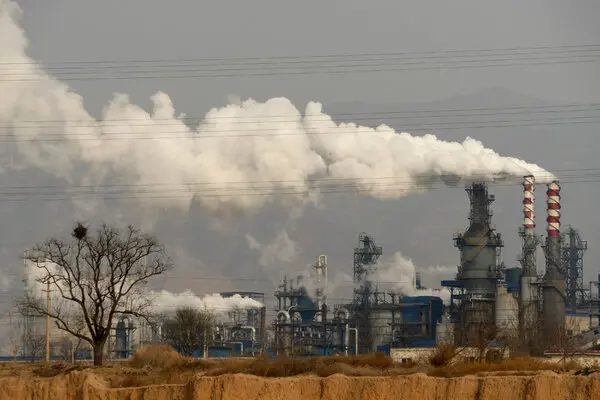WORLD REPORT

CHINA TO SET ABSOLUTE CARBON EMISSIONS CAPS BY 2027, EXPANDING CARBON MARKET
China is set to take a major step in its climate policy by introducing absolute carbon emissions caps by 2027, moving beyond its current system of intensity-based limits.
According to a new policy released by the State Council on Monday, the caps will first apply to industries with relatively stable emissions. By 2030, Beijing aims to have a fully established nationwide emissions trading scheme (ETS) with absolute caps, supported by both free and paid carbon allowances.
At present, China’s carbon market is based on emissions intensity benchmarks, which reduce gradually over time but don’t limit overall emissions. Companies receive free carbon allowances, with heavy emitters required to buy more on the market, while low emitters can sell their surplus.
The coming reform will expand the ETS to cover more sectors starting in 2027. Although the State Council didn’t specify which industries, analysts expect sectors like chemicals, petrochemicals, paper manufacturing, and domestic aviation to be included.
This follows last year’s expansion of the ETS to steel, cement, and aluminium — industries responsible for about 60% of China’s greenhouse gas emissions. However, experts have argued that the system has had a limited impact so far due to generous free allocations.
China launched its ETS in July 2021, initially covering only the power sector. With these reforms, Beijing signals a stronger reliance on market mechanisms as it pushes toward its long-term goal of peaking carbon emissions before 2030.
"This represents a significant development in our ongoing coverage of current events."— Editorial Board









